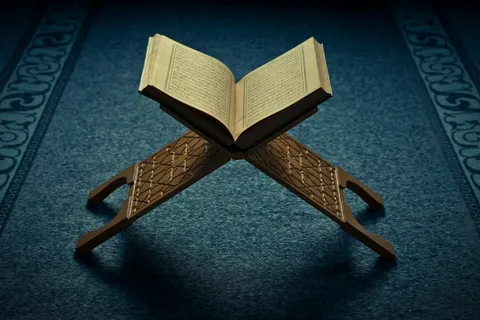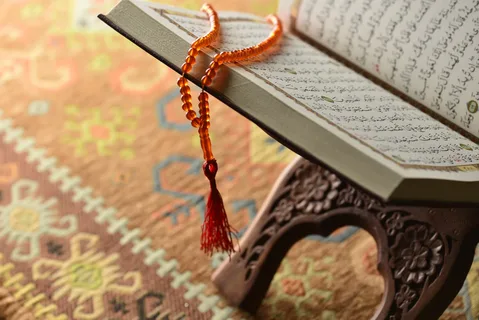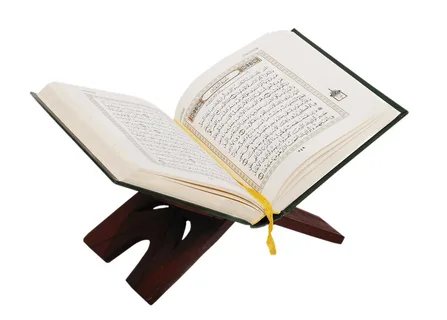Judgement Day, also known as Yawm al-Qiyamah, is one of the fundamental beliefs in Islam. It is the day when all souls will be resurrected and judged based on their deeds in this life. The Quran, the holy book of Islam, contains numerous references to this monumental day, emphasizing its significance in shaping a Muslim’s life and actions. Understanding what the Quran says about Judgement Day helps Muslims reflect on their responsibilities, the afterlife, and how their actions today will influence their future in the Hereafter, in this article on Arabian Tongue we will explorer what does the quran say about judgement day.
What is Judgement Day in Islam?

Judgement Day in Islam is the final day of reckoning when the world will come to an end, and all humans will be brought back to life to stand before Allah. On this day, every person will be held accountable for their actions, and justice will be served. The Quran describes it as a day of great magnitude, where the earth will shake, and everything hidden will be revealed.
what does the quran say about judgement day
The Quran uses several terms to refer to Judgement Day, each with its own connotation:
- Yawm al-Qiyamah (Day of Resurrection)
- Yawm ad-Din (Day of Reckoning)
- As-Sa’ah (The Hour)
- Al-Haqqah (The Inevitable)
These terms emphasize different aspects of the day, from the resurrection of souls to the final judgment and the eternal fate that follows. For example, Surah Al-Qiyamah (75:1-2) begins with a solemn oath about the day of resurrection, highlighting its certainty.
Signs of the Last Day According to the Quran

The Quran outlines various signs that will precede Judgement Day, which are categorized into minor and major signs.
Minor Signs
Minor signs include moral decay, widespread corruption, and the turning away from religious principles. For example, the Prophet Muhammad (PBUH) mentioned that time would pass quickly, people would compete in building tall structures, and religious knowledge would be taken away.
Major Signs
Major signs are more dramatic and signal the immediate arrival of Judgement Day. These include the rising of the sun from the west, the appearance of Dajjal (the Antichrist), and the descent of Prophet Isa (Jesus), who will defeat Dajjal.
The Role of Prophet Muhammad (PBUH) on Judgement Day
Prophet Muhammad (PBUH) will have a significant role on Judgement Day. He is believed to be granted the privilege of intercession, where he will plead on behalf of believers. In several hadiths, the Prophet (PBUH) is described as interceding for his Ummah (community), seeking forgiveness for their sins.
The Resurrection and Gathering
One of the central events of Judgement Day is the resurrection of the dead. The Quran describes how people will be raised from their graves and gathered before Allah for judgment. In Surah Al-Qamar (54:7-8), Allah says, “The Day when they will emerge from the graves rapidly as if they were racing towards an erected idol.”
The Book of Deeds
Every person will be given a Book of Deeds, which records all their actions. In Surah Al-Kahf (18:49), the Quran says, “And the record [of deeds] will be placed [open], and you will see the criminals fearful of that within it.” This book will serve as the evidence for each individual’s judgment.
The Scales of Justice (Mizan)
The Mizan, or scales, will be set up to weigh each person’s good and bad deeds. In Surah Al-Qari’ah (101:6-9), Allah describes how those whose scales are heavy with good deeds will have a pleasant life, while those whose scales are light will face destruction.
The Role of Angels on Judgement Day
Angels play a crucial role in the events of Judgement Day. They are responsible for recording human deeds throughout life, and on that day, they will assist in the process of judgment. Surah At-Takwir (81:10-11) refers to the moment when the scrolls of deeds are unrolled, showing what people have done.
The Judgement Process
The Quran describes the process of judgment in detail. People will be divided into different groups based on their faith and actions. Surah Al-Waqi’ah (56:7-11) categorizes people into three main groups: the companions of the right (those destined for paradise), the companions of the left (those destined for hell), and the foremost (those who are closest to Allah).
Heaven (Jannah) and Hell (Jahannam)
After the judgment, individuals will either be rewarded with Jannah (Heaven) or punished with Jahannam (Hell). The Quran provides vivid descriptions of both.
Who Will Enter Paradise?
Those who enter Jannah are described as people of faith and righteousness. Surah Al-Baqarah (2:25) states that they will enjoy gardens beneath which rivers flow, and they will have eternal peace and happiness.
Who Will Enter Hell?
On the other hand, those who reject the truth and live sinful lives will be cast into Hell. Surah Al-Mulk (67:6) warns of the blazing fire that awaits those who disbelieve in Allah and His messengers.
Read about: first women to enter jannah
Time and Duration of Judgement Day
The Quran mentions that Judgement Day will be long and intense. In Surah Al-Ma’arij (70:4), it is described as lasting 50,000 years, a period that reflects the enormity of the event. However, the perception of time in the Hereafter is different from how we experience it in this life.
Read more: what does the quran say about marriage
FAQs
What are the key signs of Judgement Day in the Quran?
The Quran mentions both minor and major signs, including moral decay, the rise of Dajjal, and the descent of Prophet Isa.
Does the Quran mention the exact time of Judgement Day?
No, the Quran makes it clear that only Allah knows when Judgement Day will occur.
What role do angels play on Judgement Day according to the Quran?
Angels record human deeds and assist in the judgment process.
How are deeds recorded according to the Quran?
Deeds are recorded by angels in a Book of Deeds, which will be presented on Judgement Day.
What does the Quran say about life after death?
The Quran describes life after death as a reality where individuals will either enjoy eternal bliss in paradise or suffer punishment in hell based on their deeds.
Conclusion
The Quran’s teachings on Judgement Day serve as a powerful reminder for Muslims to lead righteous lives and prepare for the afterlife. It is a day when justice will prevail, and every soul will be compensated for its actions. By reflecting on the Quranic descriptions of this day, believers can better understand the importance of accountability and strive to live in a way that pleases Allah.


